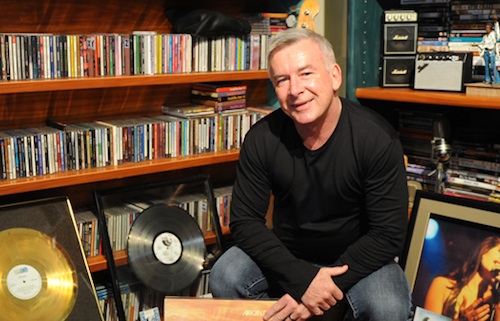
A recent PricewaterhouseCoopers (PwC) report, SA Entertainment and Media Outlook: 2010-2014, paints a gloomy picture of the country’s recorded music industry, with sales falling in double digits year on year.
The question exercising the minds of local music industry executives is whether new models of selling music online can help arrest the fall in sales.
Paul Thackwray, GM for Columbia/Epic Africa at Sony Music Africa, says that with no indications that Apple’s popular iTunes music service will come to SA any time soon, the move to digital platforms may take longer than expected — to the detriment of both record labels and musicians.
Thackwray says despite growing broadband penetration, the SA music market has “regressed next to the rest of the world”. He says connected middle-class South Africans are highly aware of digital distribution channels abroad and are willing to pay for media but they are frustrated by a lack of awareness about where the channels of access can be found.
PwC’s report says spending on digital music in SA is not expected to surpass spending on physical formats over the next five years. By 2014, digital spending will be little more than half of spending on physical-format media, so the industry continues to rely on retailers for distribution.
“SA is still very much a physical territory,” says Benjy Mudie, owner of record label Fresh Music and artist & repertoire consultant at Universal Music Group SA. “I think it’s going to take some time to make the transition Australia, Japan, Sweden and the rest of the world is making to digital — be it subscription models or paid downloads.”
But labels not selling their music through services like iTunes are “missing a huge market”, says Mudie.

At the same time, physical retail has become “shoe-boxed” and is no longer breaking new artists, which is the industry’s lifeblood, he says. “Retail used to love music. Now it’s about what they can shift off their shelves this week.”
The licensed digital market has developed relatively slowly in SA due to low broadband use and local music labels tend to regard digital channels as a marketing platform only. “Right now, digital distribution provides a marketing platform in the product lifecycle of a music release in SA,” says Thackwray. “It’s still not a real revenue stream.”
Could streaming subscription services change that? In Europe and more recently the US, Sweden’s Spotify has become a music phenomenon, offering unlimited access to streaming music for a small monthly subscription. These services are doing well in developed markets because of convenience — it’s easier than pirating music — and they allow listeners to engage with like-minded communities.
In SA, mobile could be the platform of choice for delivering streaming music. PwC says mobile phone downloads already dominate the digital entertainment market in the country. The most popular content is video and music.
It’s not that consumers necessarily want to pay for music — whether the industry likes it or not, those days may be over. Rather, it’s that services like Spotify make “renting” music the path of least resistance. And the global music industry is realising it’s better to get some of the pie than no pie at all.
Many record companies in Sweden are already collecting more revenue from Spotify than from traditional physical sales, a fact that’s all the more impressive when one considers that Sweden is also home to The Pirate Bay, the popular BitTorrent tracker that helps people find copyrighted material online.
Thackwray reckons allowing people seamlessly to browse and discover new music for free — or for a small fee that covers the cost of licensing music from labels — is more important than figuring out how to charge for music online using traditional models because those who really connect with a particular artist or band usually find a way to support them, be it by buying a ticket to a show or a piece of merchandise.
Mudie is more prosaic. He says there is a “correlation between making great music and selling it, be it digital or physical. People will always support a good product.”
Consumers are always looking for new music to consume and they want to find it through trusted, convenient channels, he says. — Craig Wilson, TechCentral
- Subscribe to our free daily newsletter
- Follow us on Twitter or on Facebook




